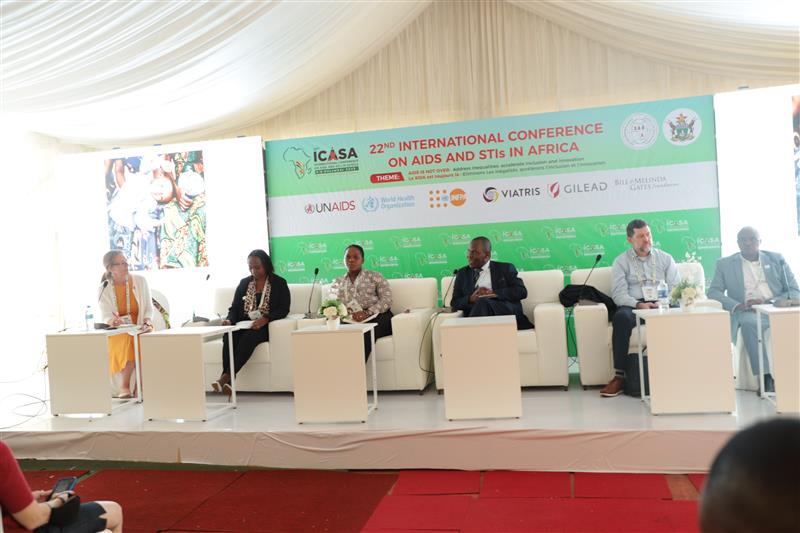|
Getting your Trinity Audio player ready…
|
Elizabeth Glaser Paediatric AIDS Foundation (EGPAF)’s Regional Acceleration Strategy uses an innovative, integrated implementation strategy for sustaining health programming in local government and is offering impressive health outcomes.
Speaking to Spiked Online Media on the sidelines of the ongoing 2023 International Conference on AIDS and Sexually Transmitted Infections in Africa (ICASA) in Harare, Dr. Sajida Kimambo, Country Director of EGPAF Tanzania said (EGPAF) has worked with regional and council health management teams (R/CHMTs) and local government authorities (LGAs) in Tanzania,
building their organizational capacity to plan, budget, and manage HIV/TB programs, and promoting the path to country ownership of the HIV and AIDS response.
“RAS is built on stakeholder partnerships that include donors, like-minded implementing partners, government counterparts, civil society organizations (CSOs), health care workers, community members, and health care recipients. Project teams collaborate with R/CHMTs and health facilities to co-create joint work plans, including resource prioritization and use.
“The local government receives project funds through subawards. The project teams are co-facilitators and technical advisors seconded to the regional and district leadership team. Since the inception of the RAS, the project has efficiently and incrementally increased the number of people served as shown below, despite declining budgets. The vision of the RAS approach is to ensure the sustainability of the HIV response by locally embedding the program with the LGAs,” Dr. Kimambo said.
She added that EGPAF has consistently used a country ownership approach, working with and through existing national systems to bolster the capacity of governments to respond to the health needs of their populations.
EGPAF’s activities are guided by its institutional framework to advance sustained country ownership and capacity, which includes: evidence-based health systems strengthening activities at all levels of the health system; a comprehensive organizational development of government partners, CSOs, and providers; and an iterative capacity assessments to monitor progress and identify gaps.
“EGPAF works with governments and local organizations, providing hands-on technical assistance (TA) that is embedded within existing structures. EGPAF develops and evaluates improved models of service delivery and assists in the scale-up of the models across supported project regions. Together, EGPAF, local governments, and non-government partners ensure that clients receive comprehensive HIV/TB services across a range of interventions while strengthening integration with other health services and ensuring community engagement.”
Dr. Best Magoma, the Dodoma Regional Medical Officer said the strategy was developed so that regions would have greater ownership of—and accountability for— program performance; adding that it aims to build local capacity, support a successful transition, and operationalize the path to sustainable local government ownership.
RAS has significantly improved EGPAF’s support for donor-funded health service delivery. While donor-funded projects are often implemented through vertical programs, the RAS acknowledged the need to fully integrate and embed these projects into the public health system.
Creating ownership and accountability at the LGA level has eliminated these siloes and paved the way for a sustainable transition to country ownership.
The RAS facilitated a seamless transition, introduction, and implementation between USAID projects (Boresha Afya North/Central to Afya Yangu Northern). Despite the funding gap between the two projects, which caused a drop in implementation support in the first quarter of the new project, the RAS approach enabled teams to efficiently and effectively address performance gaps.
The new USAID Afya Yangu Northern project achieved first-year targets and is on track to achieve year-two performance as well.
In his address during a session titled “Successful Pathways for Local Governments Leadership in Sustaining HIV Programmes and Services: Lessons Learnt from the PEPFAR-Funded Programme”, Michael Ruffner from the Bureau of Global Health Security and Diplomacy said the United States of America is committed to ensuring that such health programmes are sustainable and taken over by the governments.
“The RAS is one of the strategies that are being implemented to ensure that there is ownership and sustainability of the health programmes. We would like to commend EGPAF for coming up with this innovation,” Ruffner said.
